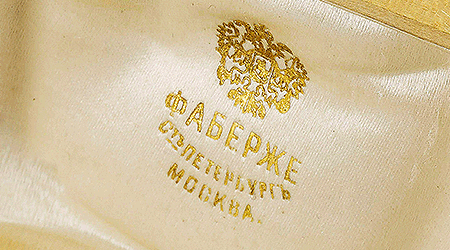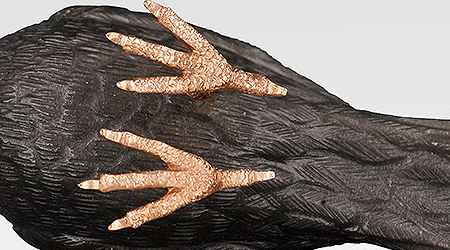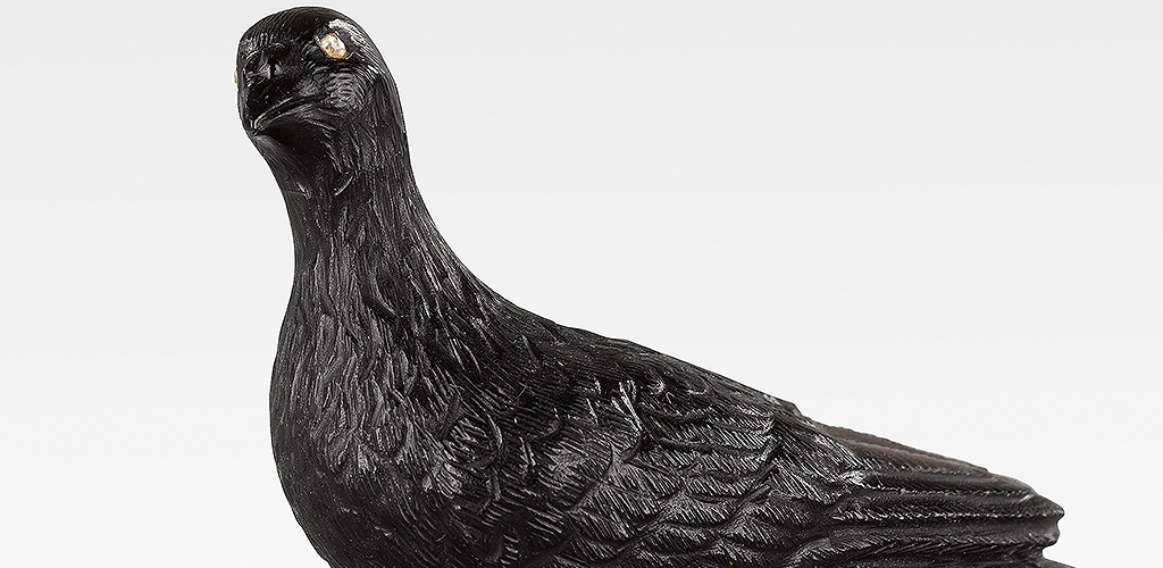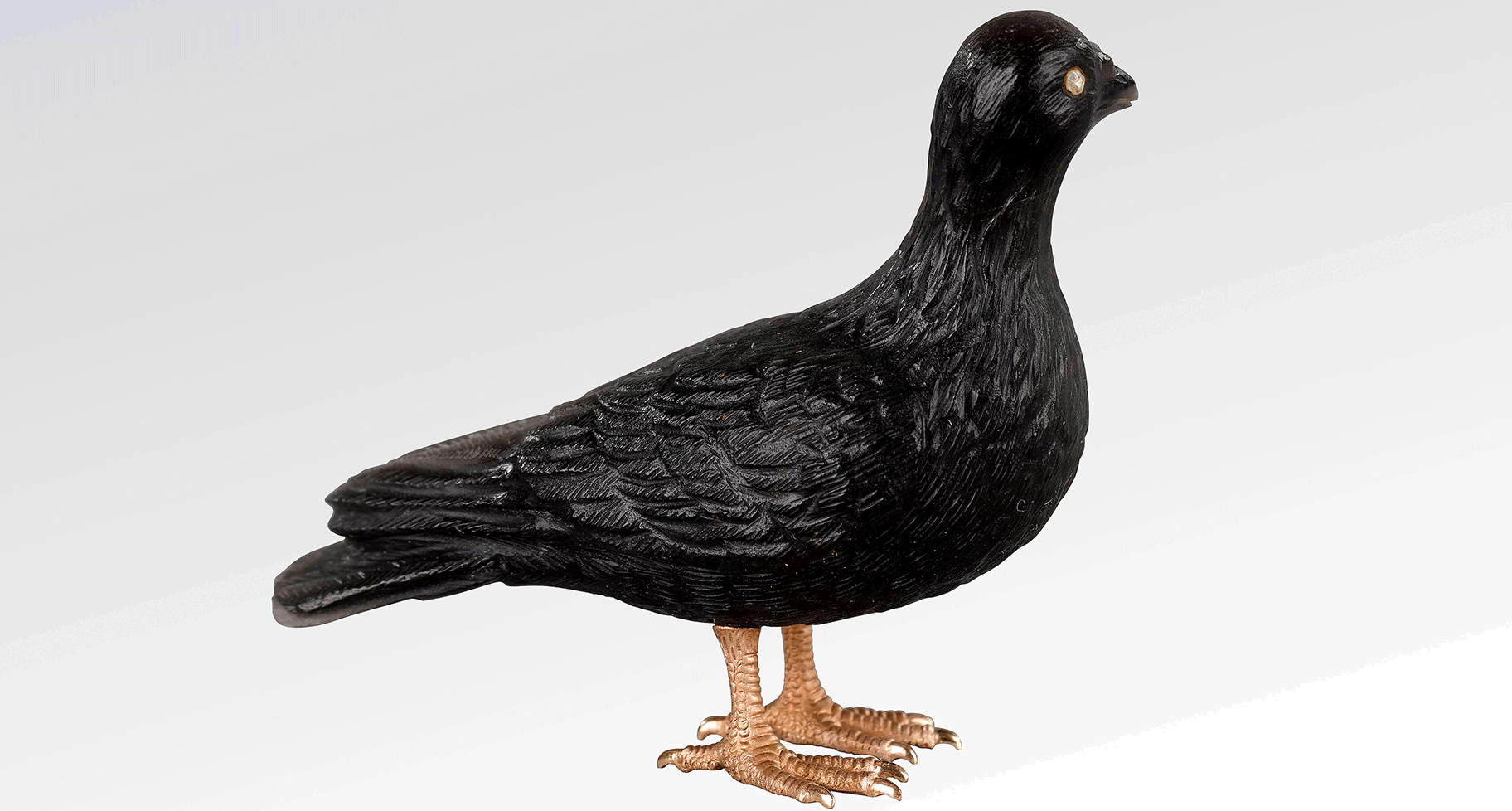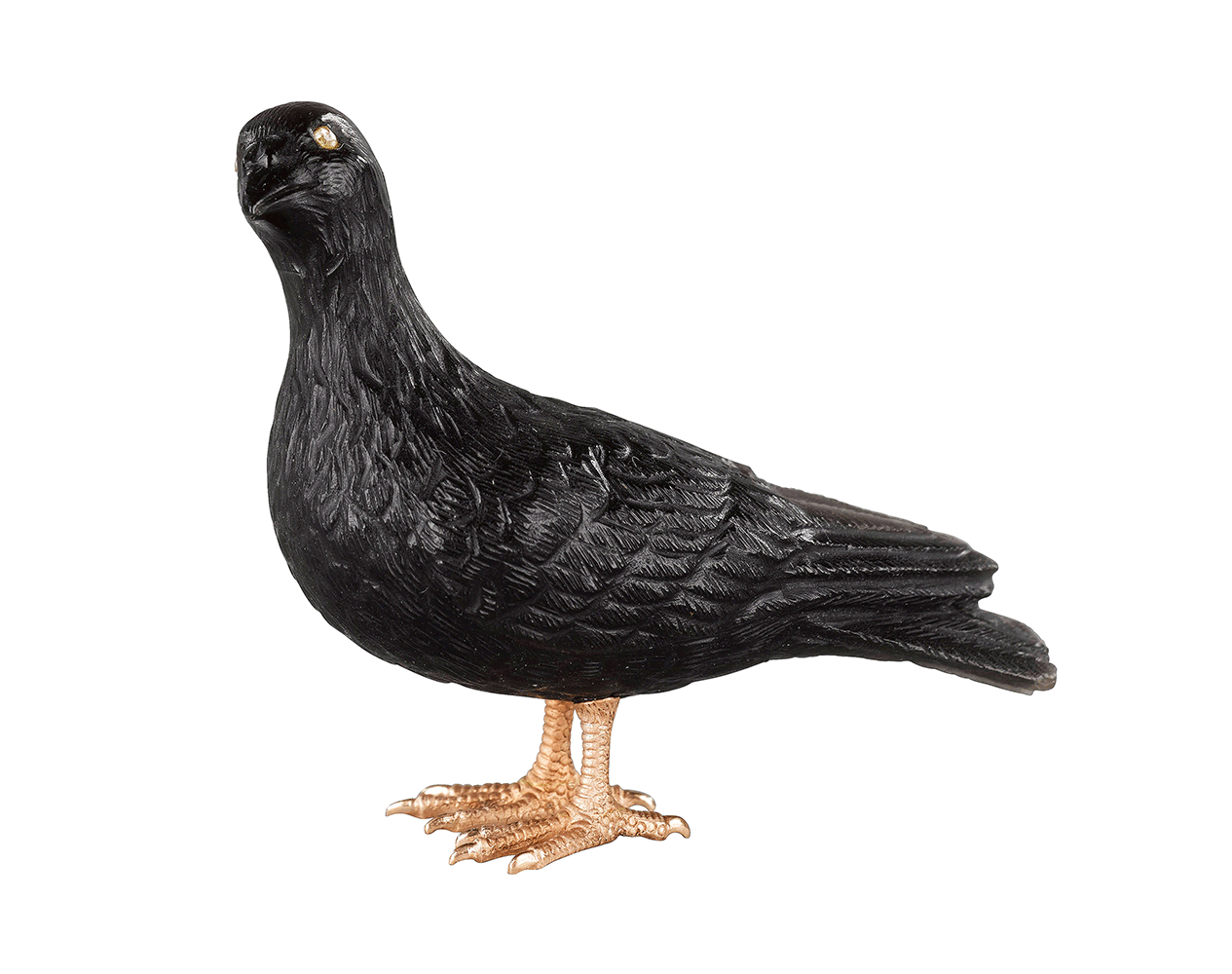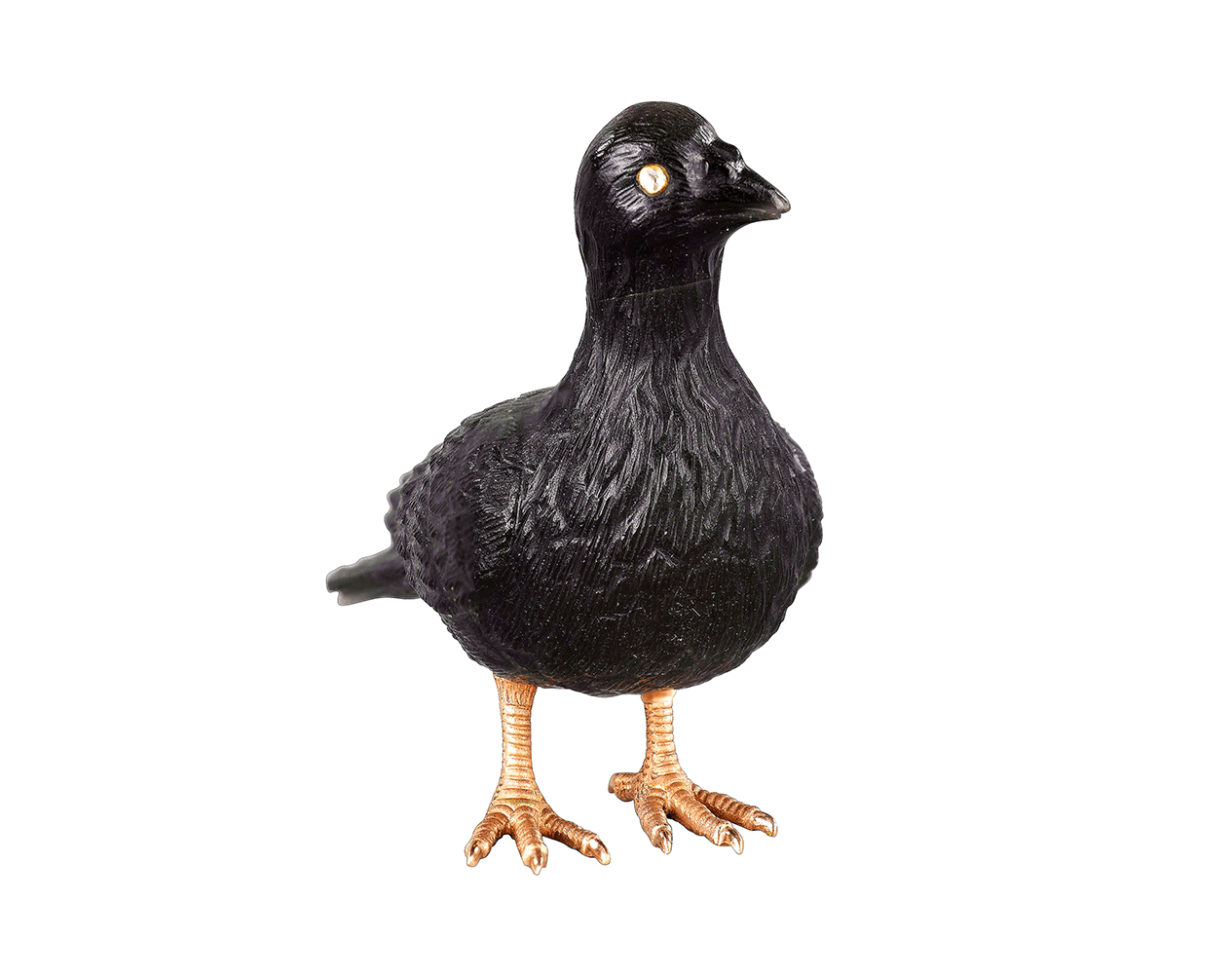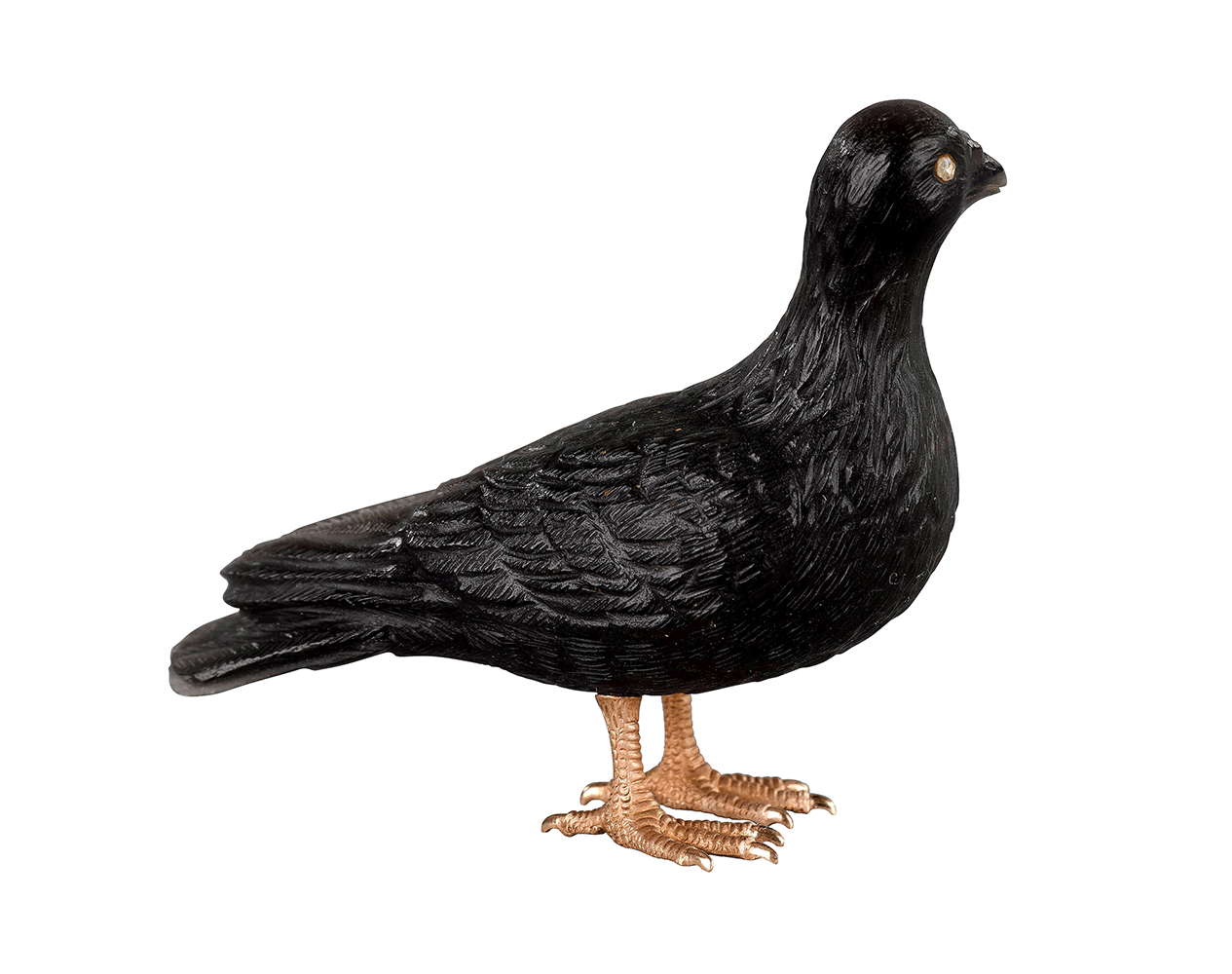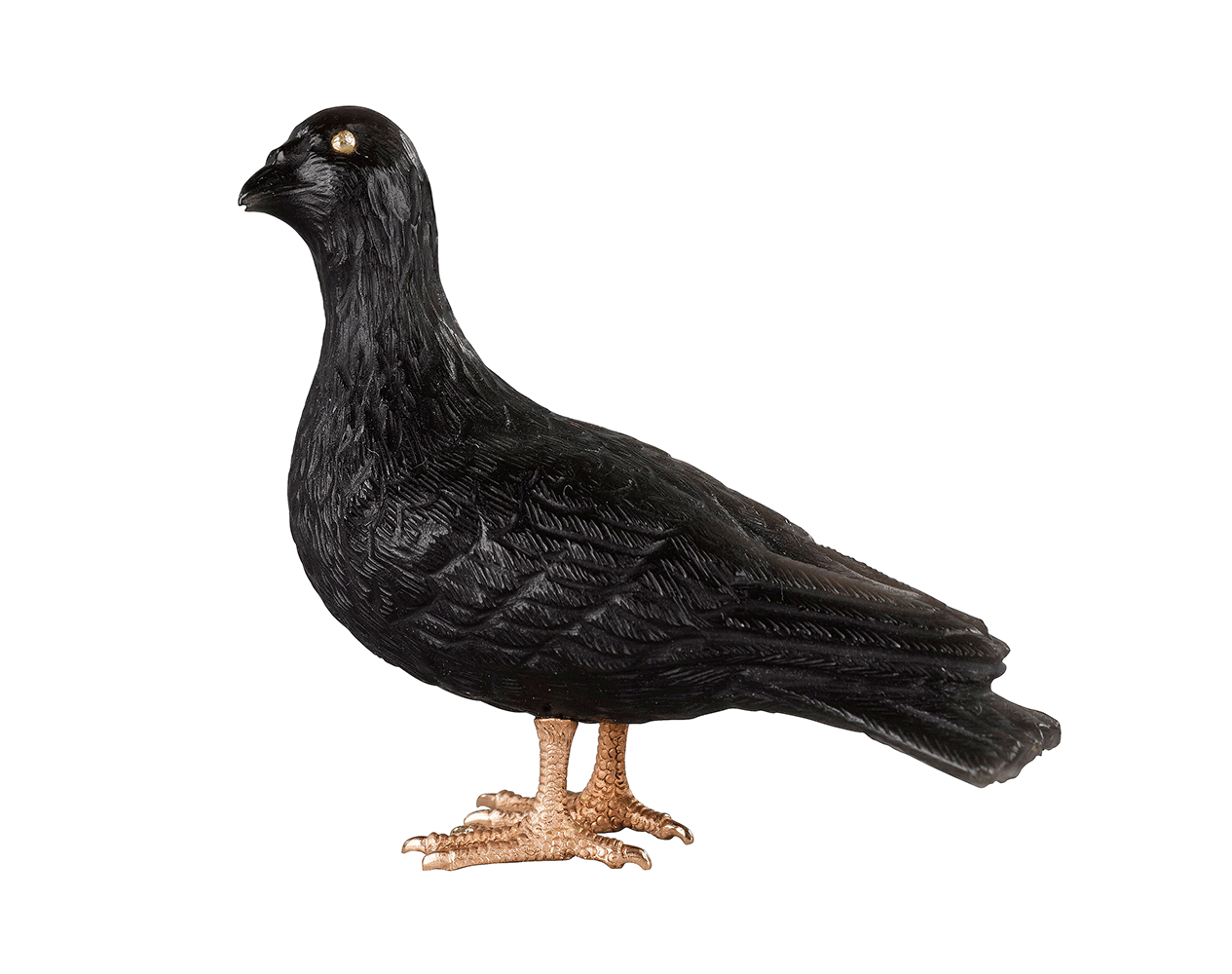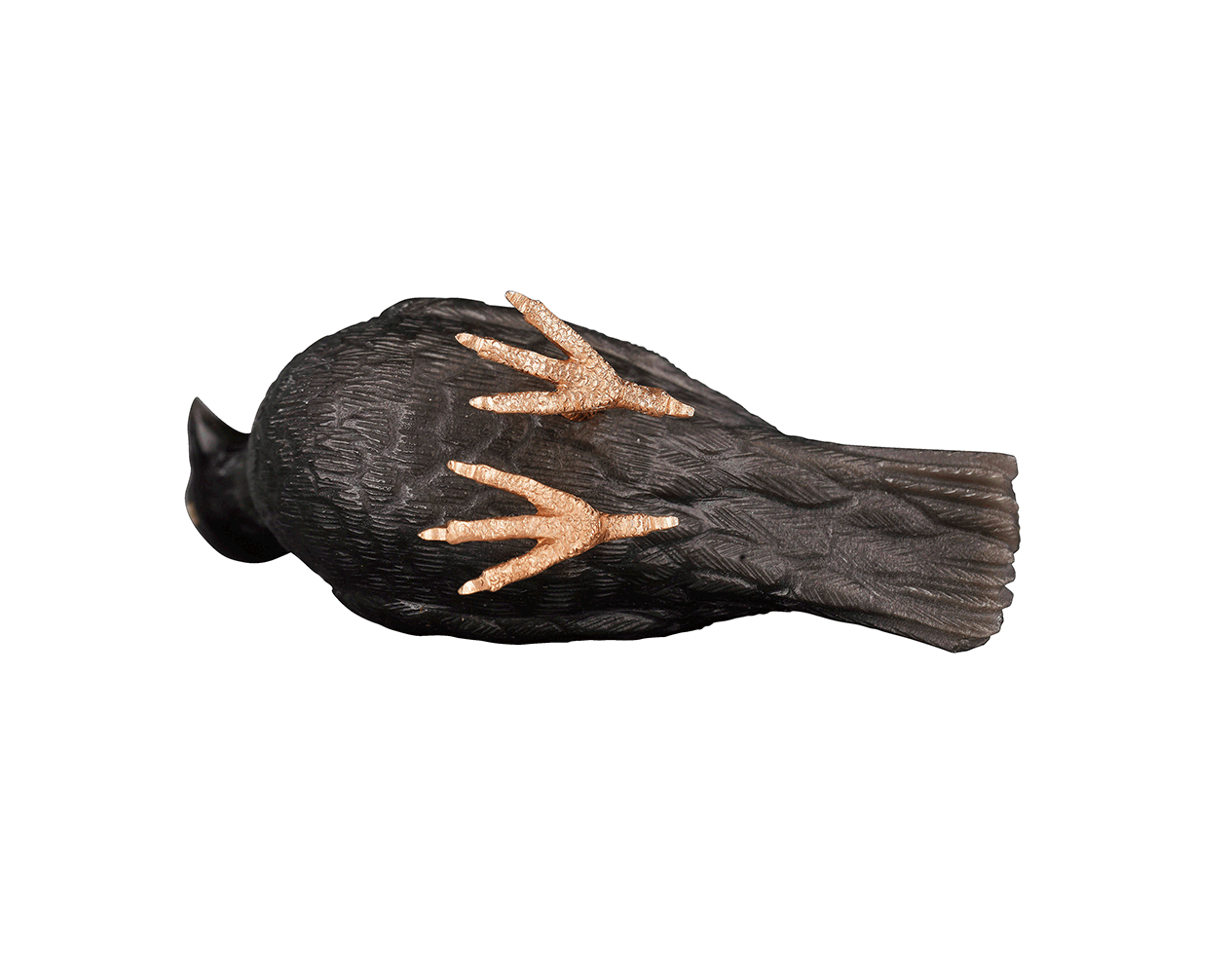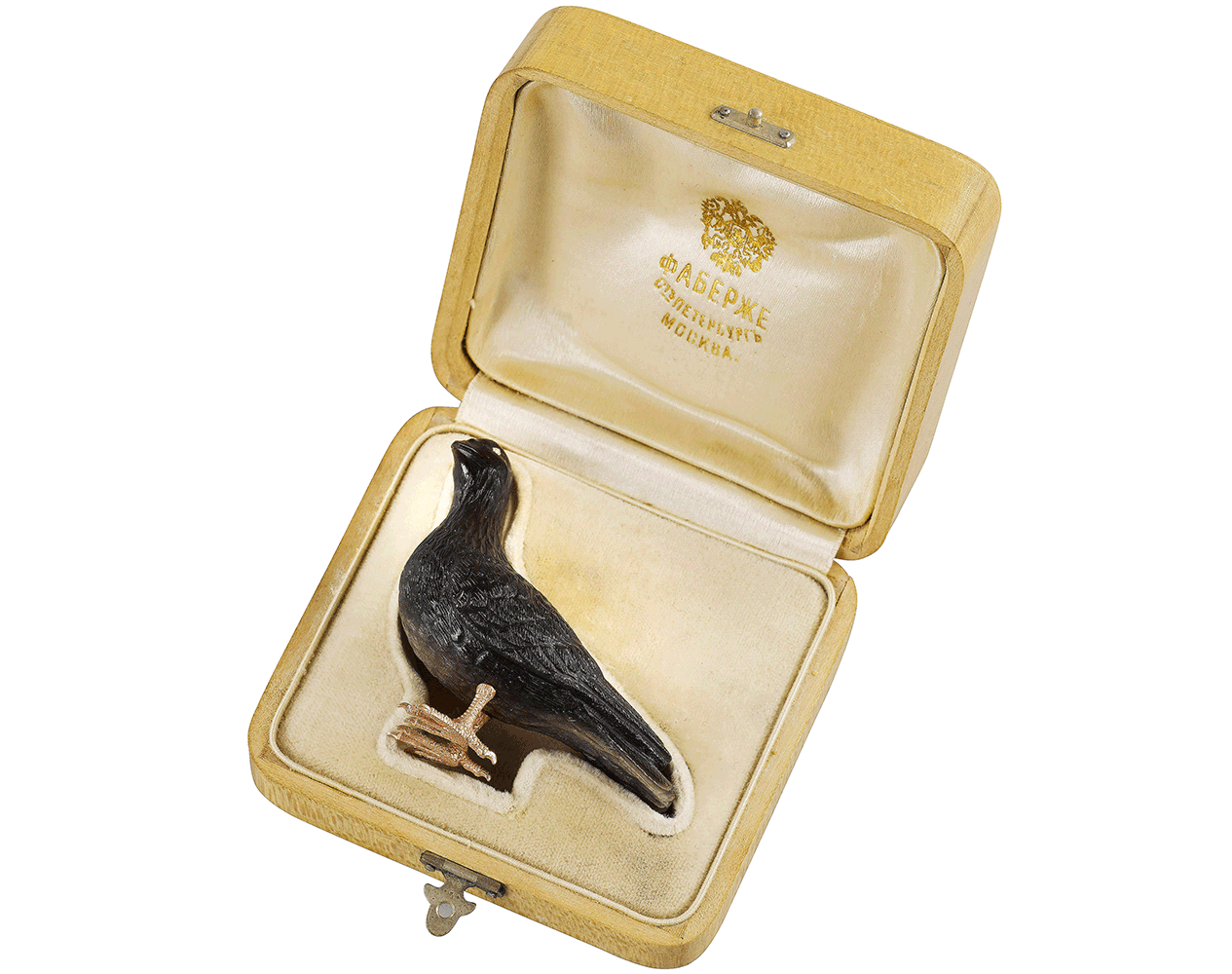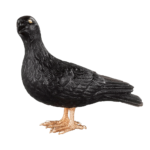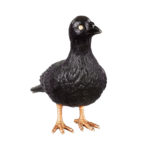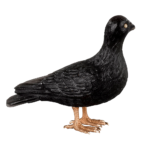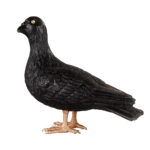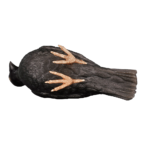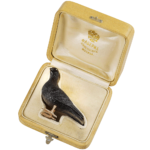Provenance
The pigeon was a gift from Grand Duchess Olga Alexandrovna, sister of Tsar Nicholas II to her aunt Princess Thyra of Denmark, Duchess of Cumberland for Christmas 1907. Accompanied by a handwritten note in English, ‘From Olga of Russia, Xmas 1907’
Exhibitions
Fabergé, Hofjuwelier der Zaren, Munich, Kunsthalle der Hypo-Kulturstiftung, 5 December 1986 – 8 March 1987, no. 327
Fabergé – Cartier. Rivalen am Zarenhof, Munich, Kunsthalle der Hypo-Kulturstiftung, 28 November 2003 – 12 April 2004, no. 325
Bibliography
G. von Habsburg, Fabergé, Hofjuwelier der Zaren, Munich, 1986, no. 327, p. 198
G. von Habsburg, Fabergé – Cartier. Rivalen am Zarenhof, Munich, 2003, no. 325, p. 246
A study of a pigeon, carved from a single piece of obsidian in a standing position, with naturalistically chased gold legs and feet and eyes set with rose-cut diamonds; contained in its original silk and velvet lined fitted wooden case, the inside lid stamped in Cyrillic ‘Fabergé, St. Petersburg, Moscow’ beneath the Imperial Warrant.
Fabergé hardstone carvings of pigeons and doves can be found in the royal collections of Great Britain and Denmark. A similar piece, also carved of obsidian, and of identical size, from the collection of Queen Ingrid of Denmark (1910-2000) is illustrated in the exhibition catalogue Kejserinde Dagmar Maria Fjodorovna, Copenhagen, 1997, cat no. 278.
For a design of a pigeon by Henrik Wigström dated 1911, see Ulla Tillander-Godenhielm, Golden Years of Fabergé, Drawings and Objects from the Wigström workshop, Graulhet, 2000, p. 159 no. 111
